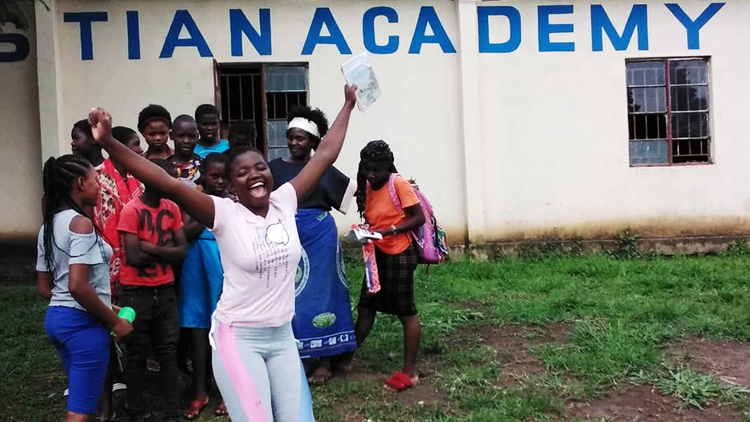- Have any questions? Contact us!
- info@dr-rath-foundation.org

Fighting Poverty, Hunger & Disease In Zimbabwe
February 18, 2022
EU Investigates Reports Of Menstrual Disorders After mRNA COVID Shots
February 23, 2022Spreading The Principles Of Cellular Medicine To Tackle Malnourishment, Poor Health & Unemployment In Malawi

The Movement of Life Malawi project was launched in September 2020, after I was inspired by reading of the work done in Uganda and decided to start a campaign in my country through setting up a local NGO, the Emmanuel Foundation. I opted for a community-based project, giving home gardening demonstrations to promote good health through the growing of micronutrient-rich natural fruits, vegetables, and medicinal plants for domestic consumption, with the surpluses sold to help increase family incomes.
The project involves choosing one family in each of several small communities, and teaching them the principles of Cellular Medicine and the importance of micronutrients in maintaining good health. The families are shown how to collect the seeds of fruits, vegetables, and medicinal plants that are capable of thriving in local conditions. They learn methods of nursery bedding and the gardening of plants, and ways to care for them by purely natural means, to raise chemical-free produce.
In each village the help of the headman is sought, to choose the most vulnerable family. This is done in consultation with the district council office responsible for the social welfare of families. These families are malnourished, as they cannot afford to have a proper daily meal. Malawi is a land-locked country sharing borders with Mozambique, Zambia, and Tanzania, with a population of about 19 million. The rate of unemployment is high at 6 percent. Illiteracy rates are also high, resulting in destitution for those who cannot find the work to make a living.
The family homes where the project is conducted serve as models for their communities, showing what can be achieved and how. Members of these communities, through community leadership, are invited to learn and to start their own home gardens.
Because the project involves strictly natural approaches, participants are taught the skills to make organic manures, organic pesticides using ingredients such as chili and ash, and organic animal medicines. They also learn about small-scale agricultural processing, which is intended to help families boost their much-needed income. Thanks to the generosity of the Dr. Rath Health Foundation, we are able to help households through the provision of gardening tools such as wheelbarrows, watering cans, hoes, and others.
Since the baleful effects of poverty – diseases of malnutrition, infectious diseases, and domestic violence – are very common in Malawi, we welcome a project that results in improved immunity against infections, a rich supply of micronutrients to prevent and control diseases, and enhanced incomes. Over time, this will stabilize families, facilitate child education, and result in greater domestic harmony and improved health.
Currently, twelve families are taking part in the project, and we have established gardens of fruits, medicinal plants, and vegetables. Within the first 15 months, approximately 20,000 fruits, vegetables, and medicinal plants had been grown, including pawpaw, guava, cucumber, granadilla, mustard, cabbage, okra, onion, ginger, tomato, and rape. We had also collected and planted more than 4,000 pumpkin seeds, kiwano seeds, aloe plants, and chili seeds.
Last year was particularly challenging, however, owing to the drought that hit Malawi so hard. Many of our fruits and vegetables shriveled in the long dry spell. To help solve this problem, we are aiming for each village to eventually have the use of one or more solar-powered water pumps. Achieving this would ultimately enable us to target a far wider audience, such as an entire village with an average of 200 households, in each of the three traditional authority areas involved in the project.
The only hope for a fair and developed world lies in equipping communities with the skills and means to produce their own food, to grow sustainable medicines that are rich in micronutrients, and to utilize the individual’s own resources to create wealth, rather than depending on donor money.



